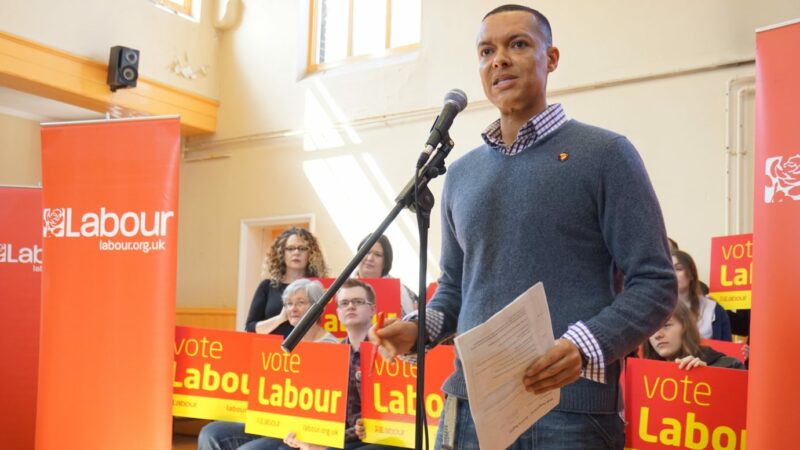
This year, flooding and wildfires have devastated huge portions of the globe. India has been hit by drought. Madagascar has suffered through a deadly famine. Jacobabad, a town in Pakistan, has experienced temperatures higher than the human body is able to withstand. It is now impossible to deny that we are living, and dying, through a climate emergency and the countries that are least responsible for climate change are suffering the most.
When Keir Starmer was elected leader of the Labour Party, he promised to build on the policies of his predecessor and put forward a more radical version of the green new deal. He told members that he would put the green new deal at the heart of everything he did, and wrote passionately about internationalising the green new deal in order to reform the global financial system. This is why many members voted for him. They wanted to retain the radicalism of the previous leadership, and put radical climate action front and centre of the campaign.
During his time as leader, Starmer has repeatedly reaffirmed his commitment to the green new deal. These have been welcome and reassuring interventions, but many voters are now looking for more detail. Over the last few years, the public have developed a good grasp of climate policy – the green new deal is no longer a fringe concern, it is an issue that will win and lose elections. A poll last year found that the green new deal was also the second most important policy for Labour Party members, beaten only by public ownership of the NHS, which ranked just one percentage point ahead. When a climate motion was recently banned by the conference arrangements committee, there was huge public pushback from members and the decision was predictably reversed.
There are, of course, many versions of the green new deal. The policy passed at the last Labour Party conference is a really good start – it set out an ambitious target date to reach zero greenhouse gas emissions – but it is not in itself sufficient. The green new deal cannot now be reduced to a bland, eco-Keynesian investment programme. It must be rooted in international justice and democratic socialism. If we hope to survive, nothing else will suffice.
In 2019, the green new deal was overwhelmingly supported by Labour Party members and trade unions alike. It was a campaign that came from the grassroots of the party and transformed politics for the better. This year, Labour Party members are once again urging the leadership to go further. At the Labour Party conference this September, there will be two key motions on climate and ecological justice: the green jobs revolution motion, as put forward by Labour for a Green New Deal; and the global climate justice motion, as put forward by a coalition of grassroots members.
The first motion commits the Labour Party to mass investment in green technologies, just climate adaptation and the introduction of universal basic services. The second motion commits the Labour Party to the cancellation of all low-income country debt, regulation of the finance system, sanctions on big polluters and legal recognition of climate refugees’ right to asylum. Both motions are essential. If the Labour Party wants to support a just transition for all workers, it will quickly adopt these policies and make them an integral part of the next election campaign.
For Starmer, it is the perfect opportunity to make good on his election promise to internationalise the green new deal. Debt cancellation, in particular, is a vital first step to achieving climate and ecological justice. Many countries are held back by unjust debt burdens, and this money would be much better spent on climate adaptation and mitigation. We also need proper regulation of the financial system: the City of London invests billions of pounds in dangerous fossil fuel infrastructure and this cannot be allowed to continue.
At Labour conference, we hope that everyone – members, trade unions and the leadership – will support these sensible and pragmatic proposals. There should be nothing controversial about the cancellation of unjust debt and the regulation of big polluters. Nor should there be anything remotely controversial about recognising the rights of climate refugees, nor further democratisation of the financial system.
A green new deal that prioritises global climate justice should be the absolute bare minimum for any progressive party. So, if you are a delegate to conference or a decision maker in the party, please support a progressive response to the climate and ecological emergency. Support the green jobs revolution motion. Support the global climate justice motion. Let us stand in solidarity with our brothers and sisters across the world. We have a world to win.




More from LabourList
Ex-Cooper aide: ‘Keir’s ground-breaking deal with France suggests his migration approach could be bearing fruit’
Labour to scrap first past the post for mayoral and PCC elections
New intake Labour MPs: ‘Why we set up the Living Standards Coalition’